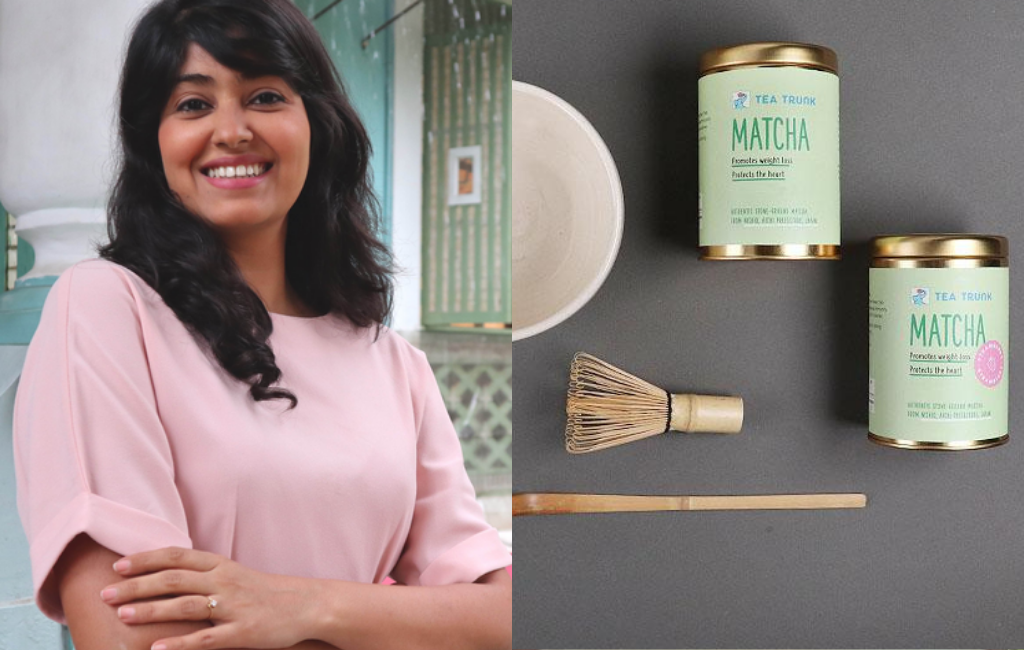
As a tea brand that’s co-founded by a woman, Karma Kettle takes immense pride in sharing this space with tea brands led by other inspiring women! All our collective journeys have carved a path for women entrepreneurs to blaze new trails in the tea industry.
Here are the stories of 4 women teapreneurs who started from scratch to launch their tea brands and have successfully scaled their businesses.
- Mayura Rao, Ausum Tea

An engineer by training, Mayura Rao worked for many years at a global advisory firm in London before the entrepreneurial bug bit her. In 2016 she left the corporate world to start her own tea business. From initial R&D to sampling, sourcing, blending, and finally, launching her brand in 2018, Mayura has done it all. The Bangalore-based tea brand, which has more than 30 stories across Chennai and Bangalore, doesn’t offer regular teas but instead focuses on tisanes and tea blends. Something that stands out about her brand? All of Ausum’s teas are in cotton recyclable tea bags, making it an eco-friendly initiative. We recommend tuning into Mayura’s holistic wellness podcast that comes out twice a month.
- Snigdha Manchanda, Tea Trunk

Snigdha Manchanda’s passion for tea saw her taking off to Sri Lanka to a professional tea school where she was tutored by the Japanese tea master, Nao Kumekawa and eventually become India’s first certified tea sommelier. Tea Trunk was founded in 2013 in Goa.
Here’s an inspiring anecdote Snigdha shared on Instagram: In 2011, I was back from SriLanka and I was doing my first tea tasting ever with Unltd.India. The only problem was I didn't have a logo yet. There was limited time and I was hustling. So I sent my hand drawing to Abhisek Sarda and requested him to turn it into a logo. This drawing was inspired by my dad's old trunk where I stored my tea collection. We started a branding exercise with (what was then) Beard Design right after this and they squashed my idea for a physical trunk as a logo. Best decision ever! I'm glad I relied on their expertise and agreed to the elephant - as a play on the trunk. Ever since this is the most memorable element of our brand. People remember us as the tea brand with the elephant.”
- Anamika Singh, Anandini Himalayan Tea

A tea industry veteran, Anamika Singh is a second-generation tea sommelier and founder of Anandini Himalaya Tea. She took her first steps towards becoming a teapreneur in Darjeeling as an apprentice under her father, Abhai Singh, a tea specialist. She now invests a greater part of the year in the family-owned tea gardens in Himachal Pradesh. In Delhi, she hosts workshops for tea enthusiasts at her cafe Anandini - The Tea Room and also conducts tea tasting ceremonies, conferences and events across India. Here’s an inspiring note she shared on Instagram: “I'm just happy that Tea has helped me meet so, so many wonderful people across the world. Some have become such good friends. And that's what helps me get myself back on track and be hopeful in this journey called Life.”
- Avantika Jalan, Mana Organics (Chota Tingrai Estate)

Tea cultivation, brewing and drinking literally runs in Avantika’s blood as she’s a fourth-generation Jalan who’s working with her family’s tea estates in Assam. With an education in sustainable development from the US, Avantika began working with farming communities in Madhya Pradesh and Andhra Pradesh for several years before she pivoted to incorporate sustainable cultivation practices in her family’s tea estates. She now leads a social initiative called Mana Organics, a partner company managing the organic tea cultivation and social projects of the company as well as environmental sustainability. In her own words, “We produce teas that are high-quality, ethical, and sustainable”. Chota Tingrai employs more than 500 women in tea estates and factories.

